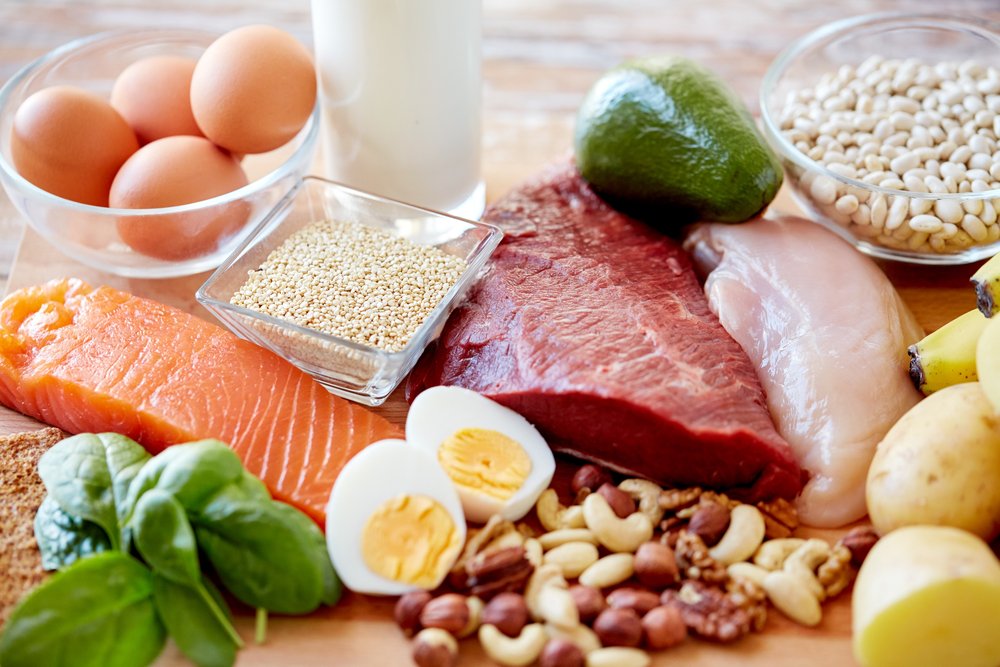why protein first?
 We are told after weight loss surgery that it's an important mealtime rule to eat protein first. But do you know WHY is it so important? Let's take a look.
We are told after weight loss surgery that it's an important mealtime rule to eat protein first. But do you know WHY is it so important? Let's take a look.
Slow and Steady
Proteins digest more slowly than carbohydrates and help keep your blood sugar level steady.
Proteins act like a stablizer. Carbohydrates are not "bad", they give you energy. You need them, just in the right balance and in the right order.
Your body turns carbohydrates into sugar, so when you eat carbohydrates first, you are inviting diaster. It's like dumping sugar into your body without a "safety net"—and we all know what that means after weight loss surgery. Without the protein safety net, you will eventually crash. Undigested sugar causes dumping, high and low insulin swings—making you feel terrible, not to mention a dangerous health risk.
Eating protein first helps your body start processing protein before introducing carbs. So when you do eat those few prized bites of bread, pasta, starchy veggies or simple sugar, you give your body a "cushion" to help balance your insulin levels—keeping you healthy and feeling energetic, not tired, sick and sluggish. Not just for the short term, but drastic swings in insulin levels are detrimental to your overall health, long term. You do need carbohydrates to give you energy, just in the right balance and in the right order.
Altered Reality
No matter what kind of weight loss surgery you have, your stomach has been altered. It doesn't produce as much acid to digest foods as it did before. Surgery slows the process of protein digestion down even more. So getting that start on protein first is extremely important.
Foods such as beef and chicken, and fattier fish such as Salmon, take longer to digest. They also help keep you fuller longer as well as balance blood sugar levels. Lighter, whiter and less fatty fish, scallops, shrimp, crab and other shellfish digest quickly and don't hold your blood sugar steady as long. So when you do eat lighter fish or shellfish, just make sure to steer clear of starchy foods. In other words: eat starchier foods with heavier proteins and more lean and green veggies with seafood. The more active you are, the more likely you are to fair better with more dense protein meals.
All the Way to Better
After weight loss surgery, you don't just want to go back to normal, you want to go all the way to fabulous. You want a new and improved quality of life. In the weight loss phase, liquid proteins are a MUST. But afterwards the goal should be to return to a normal and healthy diet in which proteins are in solid form.
Liquid proteins are pre-digested. That's great when your newly formed pouch is tiny and trying to heal. But liquids leave your stomach quickly. Causing you to be hungry and leaving your insulin levels at risk of sudden changes without warning.
As soon as you pass the first few months of the weight loss phase, and your body has no more energy storage (or fat) to rely on, returning to solid food and leaving behind those liquid proteins, protein bars and other soft foods that pass through your body quickly, is your best option. (Timing of these dietary changes should be discussed with your surgeon or nutritionist).
Protein is an important dietary element for our overall health. As we age, we loose muscle mass which is one of the main causes of injury and aging. Proteins build, heal, and repair our body—making enzymes, hormones, and other body chemicals, they are an important building block of bones, muscle mass, cartilage, skin, and blood—as well as building and boosting our metabolism.
Unbalanced hormones such as insulin levels can reek havoc with your weight-loss efforts. Learning how to return to a bariatricly balanced diet is the crucial for long-term weight loss efforts, overall health, as well as the way you feel after and meal and throughout the day. Learning to feel full and satisfied, knowing how to balance your diet, and boosting your metabolism after weight loss surgery can determine your level of weight loss success and your ability to return to a healthy and energetic lifestyle long-term.
Yes, you can. You have many more miles to go!
